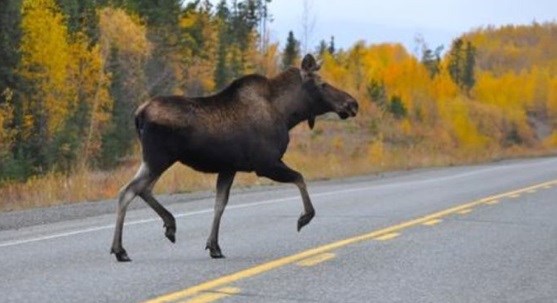OPP are warning of the increasing risks of wildlife-related motor vehicle collisions in the upcoming months.
"The majority of wildlife-related collisions occur from October to December, with 85.5 per cent involving deer," says a release. "Deer are more active during the end of the year due to mating season and are often on the move searching for food."
Safety Tips for Drivers:
- Reduce Speed: Slower speeds give you more time to react if an animal suddenly appears on the road, especially at dawn or dusk when visibility is reduced.
- Watch For Signs: Use caution in areas of known high animal populations, which are often indicated by roadway signs.
- Use High Beams Wisely: When driving at night, use high beams on empty roads when there's no oncoming traffic to give yourself more time to spot and react to wildlife on the road.
- Watch for Movement: Look for reflections from your headlights, which often catch the eyes of wildlife.
- Brake Firmly, but Don't Swerve: If a collision seems imminent, it's safer to brake firmly rather than swerving, which could lead to losing control of your vehicle or colliding with another vehicle or fixed object.
- Always stay sober, alert, undistracted, and seat-belted when driving.
If you see wildlife near the road, reduce your speed and be prepared to stop. Honk your horn to alert the animal and signal other drivers. Let's work together to ensure a safe driving environment for everyone.
Remember, the Ministry of Natural Resources says if you want to keep a dead wild animal like a white-tailed deer, moose, elk, black bear, hawk, eagle, owl, or other fur-bearing mammals that have been killed or found on a roadway, you are required to submit a Notice of Possession upon acquiring the dead animal.
See: Dreaming of frying up that tasty raccoon you accidently ran over last night? The MNR wants to know



